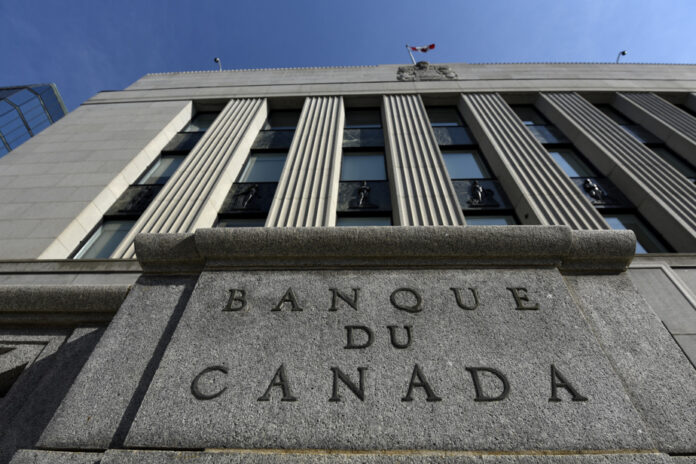(Ottawa) Most forecasters expect the Bank of Canada to go ahead with another interest rate hike in July, even as they expect annual inflation to slow significantly.
Statistics Canada is due to release its Consumer Price Index report for the month of May on Wednesday, providing the most recent inflation reading, the last ahead of the Bank of Canada’s next interest rate decision. , July 12.
“I think this release will probably be quite optimistic for inflation, in that we expect [annual] inflation to fall below 4.0%,” said James Orlando, director of economics from TD Bank.
On the food inflation front, Orlando is also hopeful that price increases will slow more significantly.
“We haven’t had the same deceleration in food prices as in the US on a monthly basis recently. »
Inflation edged up to 4.4% in April, on an annual basis, registering its first increase since last summer. The report raised concerns at the Bank of Canada about its progress in fighting inflation despite aggressive interest rate hikes since March 2022.
But next week’s statement should once again show lower inflation. In particular, the Bank of Montreal expects annual inflation to drop a full percentage point to 3.4%.
“A lot of this [drop] is just because prices rose so much a year ago,” said Benjamin Reitzes, managing director of Canadian rates and macro strategist at Bank of Montreal.
Economists widely expected annual inflation to fall sharply this year due to the year-over-year effect, which refers to the impact of price movements from a year ago on the calculation of inflation. annual.
According to Reitzes, the fact that inflation will approach 3.0% will likely make Canadians feel better about the inflation outlook and potentially affect future inflation expectations. However, this will not completely dispel the Bank of Canada’s concerns.
Most forecasters, including MM. Orlando and Reitzes expect the Bank of Canada to raise interest rates again in July, doubling its June rate hike. That’s because they don’t expect the Bank of Canada’s main concerns — core inflation and a strong economy — to be abated.
“The reason the Bank of Canada decided to raise rates […] at its last meeting, and the reason it will likely raise them again in July, is because the Canadian consumer continues to spend” , he said.
Earlier this month, the Bank of Canada announced a rate hike of a quarter of a percentage point, bringing its key rate to 4.75%, its highest level since 2001.
The decision to raise interest rates again, despite announcing a pause earlier in the year, was prompted by a series of strong economic data, which raised concerns in the central bank that the return to 2.0% inflation takes longer than expected.
“As Canadians continue to spend, these price pressures continue to mount,” Orlando said. That’s why I think they’re probably going to raise [rates] in July. »
The Bank of Canada also closely monitors core inflation, which eliminates items whose prices are more volatile. Mr. Reitzes expects that underlying inflation actually accelerated last month, which would be more bad news for the central bank.
The Bank of Canada has given financial markets no clue as to which direction it is heading. Instead, she said she plans to base her July decision on published data.
But with only a month more data to guide her, Reitzes believes it will take weak results on all fronts to convince the Bank of Canada not to raise rates.
“Unless we get uniformly weak data, it…seems quite likely that they’ll have to raise rates again,” he said.















